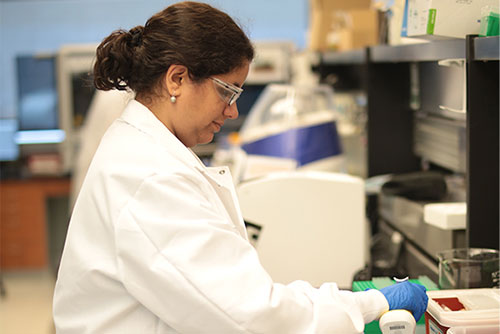How you can help slow the threat of antimicrobial resistance
The growing burden of AMR is threatening the return to a world without effective antibiotics
October 30, 2023

Before antibiotics were discovered in the 20th century, contracting an infection could be fatal. Their discovery was a turning point in human history, revolutionizing medicine and saving countless lives. However, the growing burden of antimicrobial resistance (AMR) is threatening the return to a world without effective antibiotics.
We all have a responsibility to address this threat, and it will take dedicated efforts from all sectors across health care, including patients, to make a difference.
Here are four groups that can play a role in helping slow the threat of AMR:
01.
Patients
Be vigilant in infection prevention efforts and always use antibiotics correctly
We each play an important role in slowing the threat of AMR— starting with preventing infections that require antibiotics in the first place. Washing hands, preparing food hygienically and keeping up to date with vaccinations are all measures to help avoid infections.
Another important action patients can take is using antibiotics only when they’re needed. Always follow health care providers’ (HCPs) directions and never share or take leftover antibiotics, which may not be needed and may cause resistance. If your HCP believes antibiotics are not the correct treatment to help your condition, ask about other options. Taking antibiotics when they’re not needed may advance AMR. Bottom line: It is important to follow the guidance that your medical team gives you for treatment.

02.
Health care professionals
Be a source of antibiotic guidance
HCPs and medical systems need to preserve the effectiveness of antibiotics. It’s up to the health care providers to help ensure that the right treatment is given based on an accurate diagnosis. Hospitals should have a plan in place, with principles customized to their local needs, to guide the appropriate use of these medicines.

03.
Policymakers
Encourage antimicrobial innovation
We need new antibiotic options to stay ahead of the evolving bacteria. Governments can help. Incentive packages can provide a sustainable return on investment for the development of new antimicrobials. Encouraging innovation would allow companies to invest in the research and development needed. As a result, this would help provide health care professionals around the world with the tools they need to help patients fighting infections.

04.
Industry leaders
Invest in new developments
Finally, the participation of leading biopharmaceutical companies is crucial to addressing the growing threat of AMR.
For more than 100 years, Merck has played a significant role in the discovery and development of novel medicines and vaccines to combat infectious diseases. And, in an effort to affect widespread change, we’ve supported efforts around the world that aim to address AMR through surveillance initiatives, collaborating with hospitals to fund education and implement stewardship programs, and advocating for substantial policy changes.

There is no single solution to the complex problem of AMR; it’s up to all of us to take collective action. We hope you’ll join our efforts and play your individual part to help ensure that patients have access to the antibiotics they need, now and in the future.


